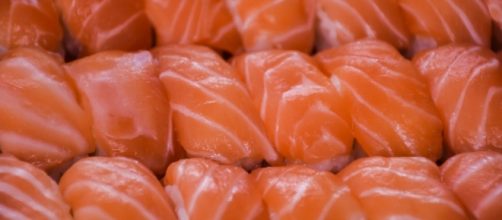Aside from Japan where it originally came from, America has been one of the countries where locals widely consume sushi. From Michelin-starred sushi restaurants, casual dining to convenience stores, sushi is already a staple in the United States. However, latest findings reveal that sushi that is made up of raw fish possibly carries parasites that are dangerous to the human body.
The curse of contaminated raw fish
Just recently, the BMJ Case Reports, a medical journal, has reported a case of a man from Lisbon, Portugal who suffered from vomiting, stomach pain and fever after eating sushi.
Originally, this 32-year-old man is healthy and has not suffered from any viral disease.
After being told of the symptoms which the patient has suffered, the doctors then decided to perform endoscopy wherein a tube with a small camera on its end was inserted into the man’s stomach to view his upper digestive system. Upon diagnosis, the doctors found out that a parasite larva was attached to the patient’s stomach wall lining.
The findings further revealed that the patient is infected by Anisakiasis – a parasitic infection of a human’s gastrointestinal tract which is carried by contaminated undercooked or raw fish and marine mammals and can cause an allergic reaction to humans. The doctors who handled the patient’s case made use of Roth net to eliminate the parasite they found on the man’s stomach which eventually led to his recovery.
Anisakiasis and how to get rid of it
Cases of Anisakiasis are mostly reported in countries, especially in Japan, where fish and seafood are mostly consumed raw, salted or slightly pickled. The percentage of Anisakiasis victims in the West has also increased in the previous years.
In the United States, however, cases of Anisakiasis are frequently not recorded as the disease can be undetected, unfamiliar to pharmacists and doctors, and sometimes mistakenly considered as other illnesses such as diarrhea.
The U.S. Centers for Disease Control and Prevention said that people who have eaten sushi and other seafood which contain Anisakiasis-causing parasites might experience symptoms such as bowel obstruction, allergic symptoms such as anaphylaxis, severe abdominal pain, vomiting, and nausea.
"We don't do endoscopies on every person with stomach complaints, so we don't know. Presumably, there are many people who get anisakiasis, and it gets sloughed out of their digestive system. It doesn't lay eggs or continuously infect the intestine," Dr. Danial Eiras of the NYU Langone Medical Center said.
Medical practitioners suggest that to avoid the risk of Anisakiasis, people, especially those who are pregnant, must avoid eating raw and uncooked fish and seafood, especially from unfamiliar restaurants.
Aside from eating sushi, people must likewise be cautious in eating ceviche. On the other hand, the U.S. Food and Drug Administration suggests that fish and seafood must be prepared and cooked with a temperature of 145 degrees Fahrenheit as it helps kill parasites.


